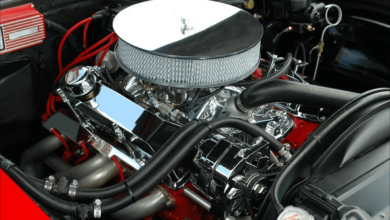Tips For Estimating Car Value To Sell Car

Determining your car’s value can be tricky when it comes to selling your car. You don’t want to price it too low and lose out on potential profit, but you don’t want to set the bar too high and scare away potential buyers. So how do you strike that perfect balance? In this blog post, we’ll share some tips and tricks for estimating the value of your car so that you can Sælg bil (Sell car) confidently and get the best possible return on investment. Whether you’re looking to upgrade or simply ready for a change, these strategies will ensure you walk away from the sale feeling satisfied with the outcome.
How to estimate the value of your car
When you’re trying to estimate the value of your car, it’s important to keep in mind that several different factors can affect the value. The first thing you need to do is find out the current market value of your car. You can do this by using a variety of online resources.
Once you have an idea of the current market value, you can start making adjustments based on the specific condition of your car. Suppose your car is in good condition, with no major mechanical issues. In that case, it will be worth more than a car with extensive damage or needing repairs.
Another factor to consider is how much mileage is on your car. A higher-mileage car will typically be worth less than a lower-mileage car. However, if your car has been well-maintained and has a clean history report, it may still hold some value despite having high miles.
Finally, remember to account for any special features or upgrades you’ve made to your car. Suppose you’ve installed aftermarket wheels or a performance exhaust system, for example. In that case, these can add some extra value to your car. Suppose you need to figure out how much these improvements are worth. In that case, you can again consult online pricing guides or speak with a local automotive specialist.
What factors affect the value of your car?
If you’re selling your car, it’s important to be aware of these factors so you can price it accordingly.
Make and model
Certain makes and models are more valuable than others. For example, luxury or sports cars are worth more than economy cars.
Age
The newer cars are worth more than older ones. However, there are some exceptions: vintage or collectible cars may increase in value as they age.
Condition
The condition of your car also affects its value. A well-maintained car in good condition will be worth more than one in poor condition.
Conclusion
Selling a car can be an overwhelming experience. But by following these tips for estimating the value of your car, you’ll have an easier time setting the right price and finding a buyer who will pay it. Researching the fair market value of your vehicle and paying attention to details like mileage and condition are key steps that will help ensure you get top dollar when selling your car. With a little patience and research, you should have no trouble landing a great deal for both parties involved!






